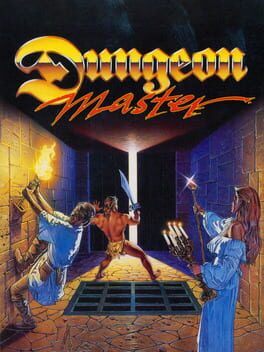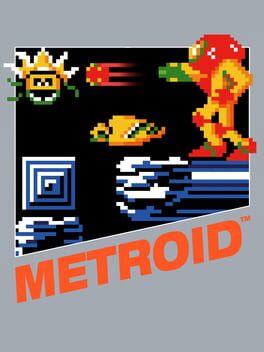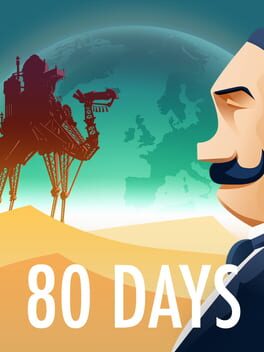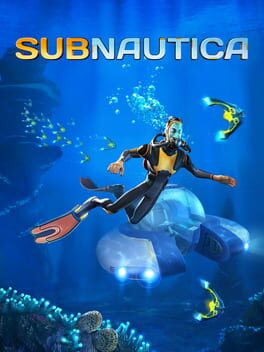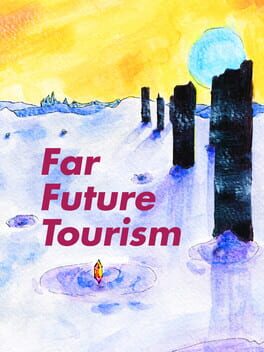nottevisthompson
Bio
Capsules, ratings and reviews from the video game critic Tevis Thompson.
Capsules, ratings and reviews from the video game critic Tevis Thompson.
Badges

Adored
Gained 300+ total review likes

Famous
Gained 100+ followers

3 Years of Service
Being part of the Backloggd community for 3 years

Loved
Gained 100+ total review likes

Trend Setter
Gained 50+ followers

Elite Gamer
Played 500+ games

Well Written
Gained 10+ likes on a single review

Gamer
Played 250+ games

N00b
Played 100+ games

Popular
Gained 15+ followers

Noticed
Gained 3+ followers

Liked
Gained 10+ total review likes
Favorite Games
590
Total Games Played
000
Played in 2024
000
Games Backloggd
Recently Reviewed See More
The terror of open water. The panic of caves. Always this tethering, to surface, to Seamoth, any pocket of air. I drink fields of color. I dive into the wreck. And I float here in space, this alien lightness, like I once did in pools, to hide my thick body. Dawn breaks just above, on the underside of waves, a sea-wrinkled sky.
For forty hours I hold my breath. I’m overwhelmed, transfixed, in perpetual disbelief. Water is so intimate, the way it envelops you, holds you. And tries to get in. It’s hypnotic but treacherous. And it is this exact combination of trance and threat that makes Subnautica not only exactly a videogame but the most beautiful game of the year.
How long can you last in this suffocating beauty? You’re always in danger of overextending yourself, and complete absorption will kill you. So you plan, you calculate, you hone your OCD and cultivate your humility. Because you will never dominate this ocean world. You’ll barely get a foothold. Forty hours in, it never stopped being mysterious or terrifying to me. I never tired of gazing out the viewing window I built just below the surface. I never stopped feeling vulnerable to it all.
What’s shocking is that a game this beautiful and intimidating also makes so much sense. And not just videogame sense. It has a natural logic and coherence throughout that is incredibly rare. From initial crash to progression via wreckage and fabrication to the revealed geography of its alien world, the game does not cheat. It makes a commitment to materiality and storage and all the struggles of liquid space. And it binds this vigilance to the most basic player motivation: the desire to explore. You make new tools not because the game forces you to but because each tool will help you see more. And you always want to see more. This focus is so compelling, and so completely realized, that even a few serious technical issues cannot detract from the final experience.
None of these qualities capture the quiet of this game, though. The stillness it draws out of me. Some nights I couldn’t play it because I didn’t have the calm. Driving my Cyclops submarine through Lost River and into the lowest depths required my complete preparation and attention. Extracting myself and all my materials afterwards somehow required even more. It was an ordeal, like any real journey, and it weighed on me. Floating there in the deep, so far from the surface, I would often think of the end of Jane Campion’s The Piano, one of my favorite movies. I would think of the ocean’s weird lullaby, of the buried selves floating below, of how part of me wanted to stay “in the cold grave — under the deep, deep sea.” Not death overcome, as in most videogames, but death contemplated and dwelled in. My usual voices hushed. This silence in me.
I’m back now, but like with any powerful experience, part of me is still anchored there. Still floating in the silence below. My speaking voice here on the surface, though, wants others to know: Subnautica is not only the greatest deep, deep sea game I’ve ever played, not only the greatest survival and exploration game I’ve experienced, it’s one of the greatest videogames of this generation.
For forty hours I hold my breath. I’m overwhelmed, transfixed, in perpetual disbelief. Water is so intimate, the way it envelops you, holds you. And tries to get in. It’s hypnotic but treacherous. And it is this exact combination of trance and threat that makes Subnautica not only exactly a videogame but the most beautiful game of the year.
How long can you last in this suffocating beauty? You’re always in danger of overextending yourself, and complete absorption will kill you. So you plan, you calculate, you hone your OCD and cultivate your humility. Because you will never dominate this ocean world. You’ll barely get a foothold. Forty hours in, it never stopped being mysterious or terrifying to me. I never tired of gazing out the viewing window I built just below the surface. I never stopped feeling vulnerable to it all.
What’s shocking is that a game this beautiful and intimidating also makes so much sense. And not just videogame sense. It has a natural logic and coherence throughout that is incredibly rare. From initial crash to progression via wreckage and fabrication to the revealed geography of its alien world, the game does not cheat. It makes a commitment to materiality and storage and all the struggles of liquid space. And it binds this vigilance to the most basic player motivation: the desire to explore. You make new tools not because the game forces you to but because each tool will help you see more. And you always want to see more. This focus is so compelling, and so completely realized, that even a few serious technical issues cannot detract from the final experience.
None of these qualities capture the quiet of this game, though. The stillness it draws out of me. Some nights I couldn’t play it because I didn’t have the calm. Driving my Cyclops submarine through Lost River and into the lowest depths required my complete preparation and attention. Extracting myself and all my materials afterwards somehow required even more. It was an ordeal, like any real journey, and it weighed on me. Floating there in the deep, so far from the surface, I would often think of the end of Jane Campion’s The Piano, one of my favorite movies. I would think of the ocean’s weird lullaby, of the buried selves floating below, of how part of me wanted to stay “in the cold grave — under the deep, deep sea.” Not death overcome, as in most videogames, but death contemplated and dwelled in. My usual voices hushed. This silence in me.
I’m back now, but like with any powerful experience, part of me is still anchored there. Still floating in the silence below. My speaking voice here on the surface, though, wants others to know: Subnautica is not only the greatest deep, deep sea game I’ve ever played, not only the greatest survival and exploration game I’ve experienced, it’s one of the greatest videogames of this generation.
Super Mario Odyssey was the most disappointing game of 2017. It was Mario as a completely modern videogame. Mario as content. With a bad moon economy, a tourism model of exploration, and the most unapologetic fanservice. Not an odyssey but a mockery. Mario Kibbles ‘n Bits. Mario Groupon. Mario Are You Being Served?
So it was the most welcome surprise to find that Astro Bot was not only the best Mario game of 2018, but the best Mario since 3D Land. In many ways, its heir. If the screen can’t get any more 3D, then we’ll just have to go further inside it ourselves. And what we find here is a fully arrived VR experience, perfectly suited to its own limits. There are no compromises or half measures. No nausea from movement or teleportation to hide its lack. It doesn’t apologize for or try to hide its limits but instead delights in them. Which is often the best response to our limits anyway: laughter. Let’s make a game of them.
This is the pleasure of constraint. I’m on a conveyor belt, every level a tunnel, and my little guy is crossing a bridge above me. Or he’s just around a corner up ahead. Or he’s running in circles somewhere beneath me. Point being, I can’t see him well. My view is decidedly sub-optimal. In a typically screened videogame, you would complain about the bad camera and strain against the controls to get a better view. But here, the strain is actually in your neck. You are the bad camera. Every player her own Lakitu.
There is such delight in this. Your body is centered, but you still have an avatar. And it is through this connection, this interplay that the haptic limits to current VR tech are downplayed and instead you feel your centered body anew. It’s not the same as the first person perspective of so many shooters. There you are not a body but a naked eyeball, untethered, flattened via the screen, more point-of-view than center. And this perspective is empowering. Without a body, without defined borders, what you see is the world.
But in VR, to bring your actual body in, its center, its limits, doesn’t empower you. It humbles you, just like in everyday life. You are a thing in the world, one of many, and what you see is a limited view, also one of many. And strangely, by combining the first and third persons and centering my actual body, an unexpected comedy emerges. My body, which I usually like to forget in games, becomes something dear, almost cute. Something to feel out again, gently, curiously, with laughter, even pleasure.
There are so many things to feel anew, which screenshots cannot capture. Heights that take your breath, waves that stifle it, caves that press in and enclose. Near and far, light and dark, the very fundaments of perception, you can feel them. Darkness is not a rectangle of black but the death of sight. Behind is somewhere you can never truly go. Everywhere textures tease. You can’t help but constantly reach out for things that are not there. There is no periphery to remind or frame or distract. You can’t check your phone. You can’t put on a podcast and chill. You have a headcrab on your face. It’s all in or get the fuck out.
I play Astro Bot and it’s as if I’ve never played videogames before. As if it all still lies ahead of me. That future feeling. I’ve known that feeling before. Super Mario Bros. in a Pizza Hut. Final Fantasy VII at Shane’s house. Grand Theft Auto III off the Old Santa Fe Trail. Demon’s Souls in Corte de Monterey. And now, here in that future, I’m still feeling…something. Not disappointed exactly. Their sequels had their moments. But I feel the struggle of all aging groundbreakers. For relevance. Vitality. New Ground. And I pause.
The language of VR hasn’t settled out yet, the genres haven’t calcified. And there are many obvious challenges to meet — bodies in motion, haptics, a basic solipsism. But I’m going to relish this future feeling a bit longer. It’s just a hope to feel new things, to keep feeling things anew. Soon enough videogames will do what videogames do. Domesticate. Capitalize. Sequelify. Turn a future feeling into a past we’re desperate to recover. But it’s not that future yet.
So it was the most welcome surprise to find that Astro Bot was not only the best Mario game of 2018, but the best Mario since 3D Land. In many ways, its heir. If the screen can’t get any more 3D, then we’ll just have to go further inside it ourselves. And what we find here is a fully arrived VR experience, perfectly suited to its own limits. There are no compromises or half measures. No nausea from movement or teleportation to hide its lack. It doesn’t apologize for or try to hide its limits but instead delights in them. Which is often the best response to our limits anyway: laughter. Let’s make a game of them.
This is the pleasure of constraint. I’m on a conveyor belt, every level a tunnel, and my little guy is crossing a bridge above me. Or he’s just around a corner up ahead. Or he’s running in circles somewhere beneath me. Point being, I can’t see him well. My view is decidedly sub-optimal. In a typically screened videogame, you would complain about the bad camera and strain against the controls to get a better view. But here, the strain is actually in your neck. You are the bad camera. Every player her own Lakitu.
There is such delight in this. Your body is centered, but you still have an avatar. And it is through this connection, this interplay that the haptic limits to current VR tech are downplayed and instead you feel your centered body anew. It’s not the same as the first person perspective of so many shooters. There you are not a body but a naked eyeball, untethered, flattened via the screen, more point-of-view than center. And this perspective is empowering. Without a body, without defined borders, what you see is the world.
But in VR, to bring your actual body in, its center, its limits, doesn’t empower you. It humbles you, just like in everyday life. You are a thing in the world, one of many, and what you see is a limited view, also one of many. And strangely, by combining the first and third persons and centering my actual body, an unexpected comedy emerges. My body, which I usually like to forget in games, becomes something dear, almost cute. Something to feel out again, gently, curiously, with laughter, even pleasure.
There are so many things to feel anew, which screenshots cannot capture. Heights that take your breath, waves that stifle it, caves that press in and enclose. Near and far, light and dark, the very fundaments of perception, you can feel them. Darkness is not a rectangle of black but the death of sight. Behind is somewhere you can never truly go. Everywhere textures tease. You can’t help but constantly reach out for things that are not there. There is no periphery to remind or frame or distract. You can’t check your phone. You can’t put on a podcast and chill. You have a headcrab on your face. It’s all in or get the fuck out.
I play Astro Bot and it’s as if I’ve never played videogames before. As if it all still lies ahead of me. That future feeling. I’ve known that feeling before. Super Mario Bros. in a Pizza Hut. Final Fantasy VII at Shane’s house. Grand Theft Auto III off the Old Santa Fe Trail. Demon’s Souls in Corte de Monterey. And now, here in that future, I’m still feeling…something. Not disappointed exactly. Their sequels had their moments. But I feel the struggle of all aging groundbreakers. For relevance. Vitality. New Ground. And I pause.
The language of VR hasn’t settled out yet, the genres haven’t calcified. And there are many obvious challenges to meet — bodies in motion, haptics, a basic solipsism. But I’m going to relish this future feeling a bit longer. It’s just a hope to feel new things, to keep feeling things anew. Soon enough videogames will do what videogames do. Domesticate. Capitalize. Sequelify. Turn a future feeling into a past we’re desperate to recover. But it’s not that future yet.
Connor Sherlock is a master moodbuilder, and his collection of worlds leverages the most basic elements — color, space, scale, sound — to completely possess you. Brief text files frame your visits as ‘far future tourism’, but there’s this constant sense that you’re not supposed to be there. They’re not for you. You’re trespassing on the universe. You encounter abandoned megastructures, but they’re monuments without referents, full of dead intentions, unreadable but still somehow feelable. Yet not in a way that draws you closer. They remain alien and inscrutable but also specific, gesturing not at something generic or universal but exact and absolute and final. The only gods left here are Wonder and her sister Horror. The rest is silence.
So you walk. What else is there to do? The universe is vast and the best way to really feel that is to walk it. Walking Simulator A Month Club Vol. 1 takes that old open world cliche — see that in the distance, you can go there! — and reaffirms its natural power. To see there from here. And then here from there. These worlds answer important questions like: what’s it like on the far side of a megalith? What’s the end of the day like for an alien archive? How big, how far away is that strange silhouette really? Everything works together — the light, palette, texture, depth of field, movement speed, the stunning score — to answer these elemental questions. Are you lost? Overwhelmed? The music will tell you what to do.
Here’s an interstellar nightclub for sentient vapors. Here’s a secret platformer where a superstructure insertion went wrong. Here’s an honest to god dungeon, with choking halls and vast chambers and the buried aqueduct of Leviathan. Here’s an overmined crystal planet just before its death. Delve deep enough and you’ll fall through the bottom, into the wild pink. You’ll visit these worlds pre or post or mid apocalypse. Mind your step among the gassy foothills. Nevermind the shadows of comet debris. Is that a world engine burning below?
This collection of worlds, taken together, is the greatest walking simulator I’ve ever played. It takes a primary complaint against the genre — a lack of interaction — and walks it right off the edge of its worlds. It makes walking feel not like a limitation but an end in itself. Because it understands the walking simulator as ultimately a game of distance and desire. There’s no end to either, no end to the universe. The only question is: how far will you go?
So you walk. What else is there to do? The universe is vast and the best way to really feel that is to walk it. Walking Simulator A Month Club Vol. 1 takes that old open world cliche — see that in the distance, you can go there! — and reaffirms its natural power. To see there from here. And then here from there. These worlds answer important questions like: what’s it like on the far side of a megalith? What’s the end of the day like for an alien archive? How big, how far away is that strange silhouette really? Everything works together — the light, palette, texture, depth of field, movement speed, the stunning score — to answer these elemental questions. Are you lost? Overwhelmed? The music will tell you what to do.
Here’s an interstellar nightclub for sentient vapors. Here’s a secret platformer where a superstructure insertion went wrong. Here’s an honest to god dungeon, with choking halls and vast chambers and the buried aqueduct of Leviathan. Here’s an overmined crystal planet just before its death. Delve deep enough and you’ll fall through the bottom, into the wild pink. You’ll visit these worlds pre or post or mid apocalypse. Mind your step among the gassy foothills. Nevermind the shadows of comet debris. Is that a world engine burning below?
This collection of worlds, taken together, is the greatest walking simulator I’ve ever played. It takes a primary complaint against the genre — a lack of interaction — and walks it right off the edge of its worlds. It makes walking feel not like a limitation but an end in itself. Because it understands the walking simulator as ultimately a game of distance and desire. There’s no end to either, no end to the universe. The only question is: how far will you go?
